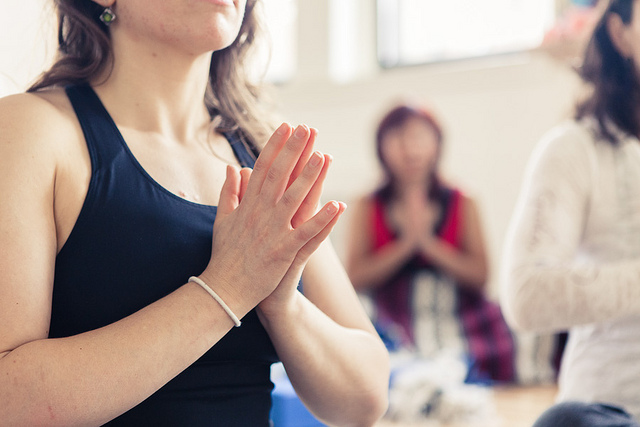Most yoga teachers have been trained in basic ethical considerations relevant to their practice.
It’s an inescapable conversation in most yoga trainings because of how easy it is to blur the lines of relationship when you are entering into this realm of psycho-emotional gold mining: panning for the roots of pain, suffering, inadequacy, loss, and separation that plague embodied life.
As much as we may be tempted to think that we are taking on the same relational responsibility as our neighborhood Jazzercise instructor, Yoga isn’t stretching.
“The issues are in the tissues” as they say, and yoga is an embodied awareness which brings light to the depths of our human experience. As teachers, we are space holders for deep inner work and transformation simply because we guide our students into greater awareness of their bodies. That’s pretty amazing!
But what does it truly mean to uphold those ethical principles, and where are we personally most likely to fail?
Is it enough that we don’t date our students, that we uphold our commitments and stay transparent about the limits of our knowledge? Is it enough that we are respectful in our speech, law abiding, and non-discriminatory? That we are careful about getting consent before touching our students? That we signed that Yoga Alliance Code of Conduct?
While these questions provide some foundational considerations for teachers, there are others that I think are becoming equally relevant in the yoga world today.
These might include: What kinds of advertising exploit diminished self-worth? Is it ethical to use a fit body to sell the yoga “look”? Is it ethical to augment one’s appearance through surgery and then use that image to sell a “yoga body”? Is it ethical for a yoga teacher to rep for a beauty care line but not disclose the botox and collagen injections that they have also used?
I have noticed a lot of these types of ethical questions coming up for me as I observe how famous yoga teachers promote themselves and their brands. This has made a big impact by teaching me what my sense of non-harming has to say. I find these practices unethical because they are duplicitous and ultimately harmful to students and to the community. They feed on personal inadequacies, cultivate dishonest salesmanship, and diminish what Yoga is truly about.
The conundrum is that by even questioning these practices, I will inevitably be written off as an uptight traditionalist.
But so be it.
Killing honest discussions about the nature of yoga and our ethical responsibilities as teachers is a manipulative PR ploy that shirks responsibility for the degradation of a practice that grounds itself in ethical considerations—or yamas and niyamas. If yoga is about nothing else, it is about ethics!
I am personally interested in cultivating a yoga community that is authentic through embracing transparency and engaging in dialogue around the ways we personally fall into traps of ego. It is invaluable to have the ability to openly discuss the distinctions between self-love and self-obsession, self-worth and narcissism.
These are conversations we need to be having in yoga teacher training, in yoga class, in coffee shops, and in Facebook forums.
When the world is raining down so many asana selfies that it starts to feel like the yogapocalypse, we need to talk about how these images affect the perception of our community, and we need to be willing to speak up about the yoga culture that we want to endure for future generations.
Relephant Read:
The Ethics & Responsibilities of Teaching Yoga.
Author: Satatma Powell
Editor: Emily Bartran
Photo: elidr/Flickr







Read 2 comments and reply